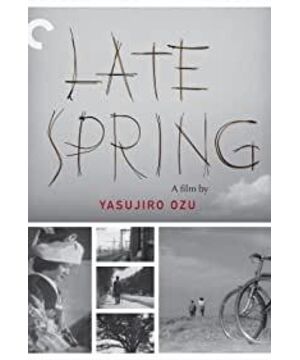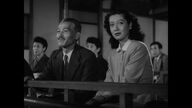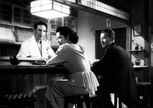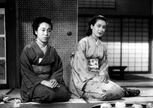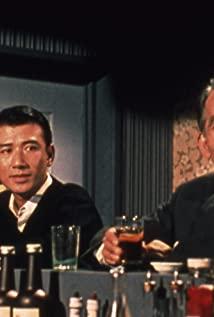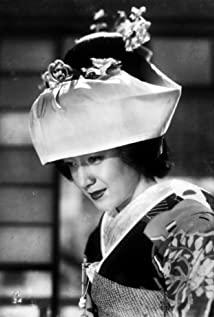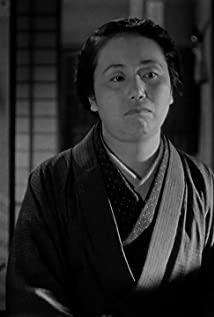At first I thought "Late Spring" was a simple film about the relationship between father and daughter, but after watching it, I found that it is much more than that. Although I couldn't appreciate the traditional Japanese drama Noh, which Professor Sonomiya and Noriko watched in the movie, the phrase "...even trees and flowers are taught..." , but lingered for a long time.
Yes, everything is educated, man is educated, and man educates everything. Noriko was completely unaware of the relationship between her uncle and his remarried wife, but she expressed that she could not accept and understand her uncle's remarriage at all. Playing together is so relaxed, free and happy, but he accepts the marriage contract arranged by his parents; although Noriko loves Hattori in his heart, thinking that he is a good person and a good husband, but because he already has a marriage contract and suppresses himself Noriko felt very sad when she learned that her father would marry again, and felt completely unacceptable; Noriko's classmate Lingzi should be in love with Professor Zeng Gong, and when Noriko got married, the two drank together and they talked Mr. Zeng Gong wanted Noriko to get married and made up a lie about remarrying, and she said that this lie was flawed, which means that she already knew that he would not marry again, and that moment's "gaffe" - in Zeng Gong The professor put a kiss on the forehead, a normal classmate and classmate's father wouldn't have such a move, but even if it was a random move like this, it wouldn't let Noriko and anyone else know how she felt in her heart. , and will only go to see him and accompany him often as a classmate.
Traditional thinking, social system, and pressure from public opinion are like an invisible thread that educates people's behavior. Everyone's behavior is trying to conform to the idea of edification, and they dare not take a step, and even deceive themselves. Noriko didn't want to arrange the marriage, but she couldn't pursue her own love. She just told her father that she wanted to take care of him. Being with her father was the greatest joy and happiness. Marriage would not bring her different happiness and happiness. , but she did not say that because she has a loved one in her heart, marrying a blind date is not because of love. Naturally, she may not be happy and happy. She concealed the truth in her heart for the sake of her father's expectations and the pressure of social public opinion. eager. 27 years old is too early to get married, but Noriko has never been married. Even an educated professor's father thinks this is unusual and does not conform to normal human history and order. This kind of behavior is also guided by traditional thinking, social system, and the pressure of public opinion. Ling Zi fell in love with her classmate's father, and he was a widower. The social etiquette and the pressure of public opinion restrained her behavior. She could only touch her forehead lightly after drinking to express her moved by her lying and deceiving Noriko into getting married. A kiss, and only occasionally accompany him on the grounds that he can only visit his classmate's father who lives alone as a classmate. At the end of the film, Noriko got married, Hattori and Professor Zeng Gong smoked and chatted downstairs. From the bland chat, it was known that Hattori was married and finished their honeymoon. Mr. Zeng Gong replied that Noriko was going to the same place for their honeymoon. To put it lightly, Hattori didn't even see Noriko wearing a Japanese bridal dress and their expressions, and all behaviors did not go beyond the limits of thunder, and all behaviors were in line with the education of the social system.
A film about the relationship between father and daughter, there are reflections on war; there is an understanding of love and marriage; there is an exposition of happiness; there is a description of the Japanese people's repressed character and behavior; Thinking about behavior; there is a mapping of social development affecting people's lives; there is a plain but extraordinary narrative about the relationship between father and daughter ••••••. In a film about the relationship between father and daughter, there are so many deep thoughts hidden in detail, but there is no trace, Mr. Ozu's directing skills can be seen.
View more about Late Spring reviews


